Bombs and bullets don’t only rock cities. Sometimes, they also shake the chessboard.
Throughout history, wars and political conflicts have spilled into chess halls, affecting tournaments, careers, and even the rules of the game.
Matches have been cancelled, venues moved, players forced to change flags, and federations split apart.
The story of chess is full of moments where real-life wars and struggles reshaped how the game was played and remembered.
The Cold War: Fischer, Spassky, And A Match That Shook The World
The 1972 World Championship in Reykjavik was not just another tournament. It was the Cold War on sixty-four squares.
Bobby Fischer, the American challenger, faced Boris Spassky, champion of the Soviet Union. For decades, the Soviets had dominated chess.
They treated victories as proof that their system produced the world’s sharpest minds.
The United States wanted to prove otherwise. Fischer, a lone genius from Brooklyn, became the perfect figure for the West.
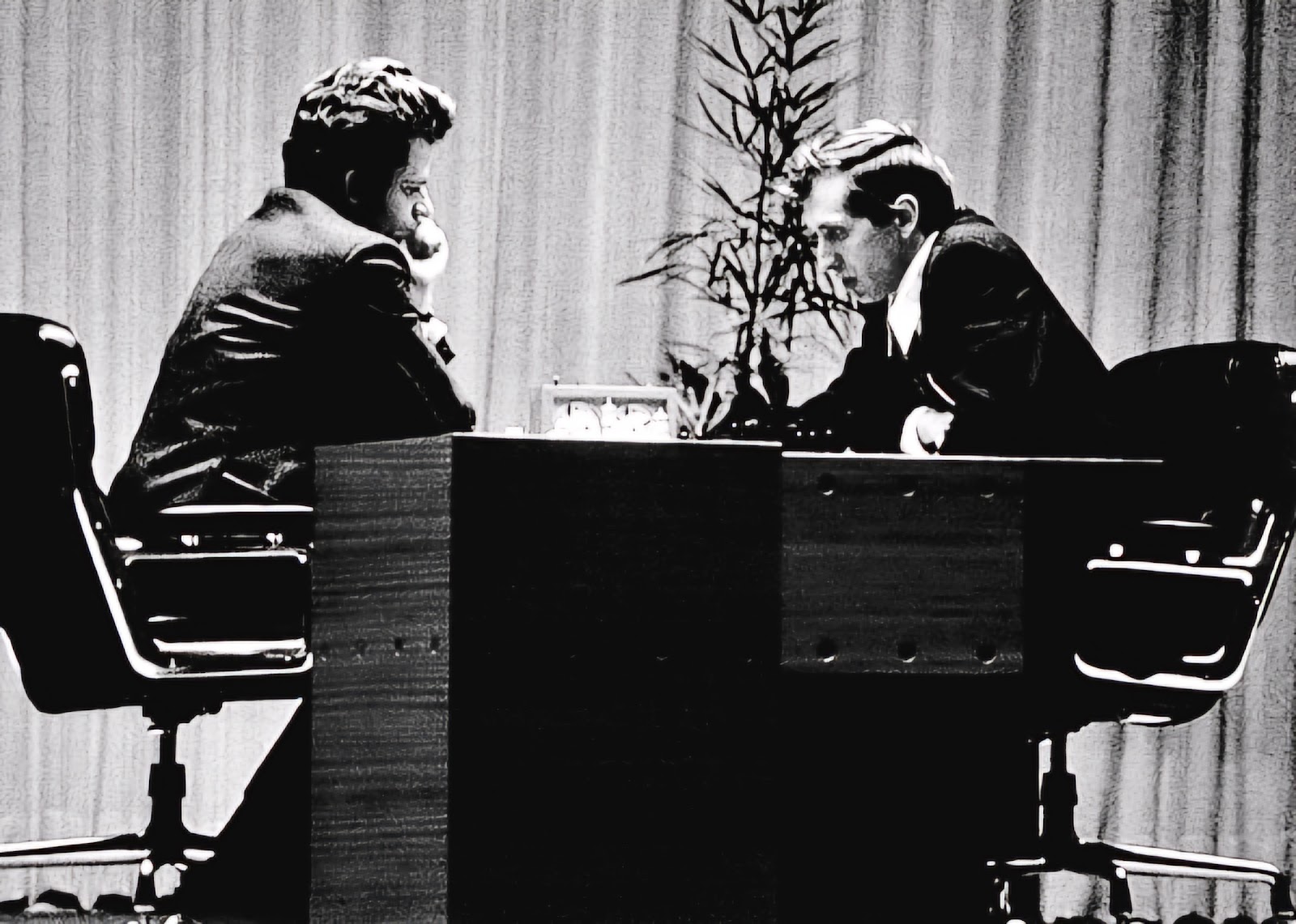
The match had tension even before the first move. Fischer delayed his arrival, made unusual demands about cameras and lighting, and almost refused to play.
Soviet officials told Spassky to pack up and return home. Spassky, under heavy pressure, decided to stay and fight.
When Fischer finally settled in, he played brilliant chess, eventually winning the match and breaking the Soviet grip that had lasted since 1948.
The world followed every move like a battle between two nations. For the first time in history, chess became a true global spectacle. Newspapers, radio, and television gave it front-page coverage.
The Cold War influence did not stop there. Viktor Korchnoi, one of the strongest Soviet players, defected from the USSR in 1976.
His matches against Anatoly Karpov, the Soviet champion, turned into full-blown political dramas.
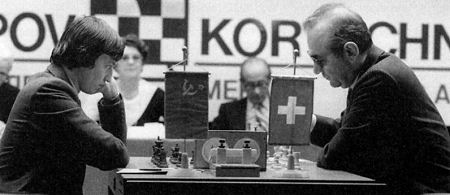
Each side accused the other of dirty tricks: hiring “hypnotists” in the audience, sending coded messages through food, and even psychological warfare with chairs.
The chess was brilliant, but the atmosphere was toxic. Korchnoi played not only against Karpov but against the Soviet state itself.
Even Fischer returned to controversy years later. In 1992, he played a high-profile rematch against Spassky in Yugoslavia despite United Nations sanctions on the country during the Balkan wars.
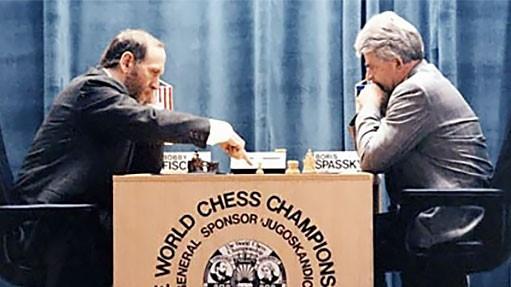
The U.S. government warned Fischer not to play, but he ignored them and faced legal trouble afterwards.
A private chess match became an international scandal simply because of where it was held.
The Cold War era proved that chess could never fully escape politics. Players carried not only their own ambitions but also the pride of nations.
Russia-Ukraine: A War That Changed Modern Chess
When Russia invaded Ukraine in February 2022, the world of chess reacted almost immediately.
FIDE, the international chess federation, suspended Russia and Belarus from official team competitions.
Individual players were still allowed to compete, but only under the neutral FIDE flag. This way, the organization punished governments without punishing players completely.
The biggest change was the relocation of events. The 44th Chess Olympiad, initially scheduled for Moscow, was moved to Chennai, India.
Organizers had to act fast, and India stepped in as host. The Olympiad went smoothly, but the shift showed how war can suddenly change the world’s biggest chess gatherings.
Inside Russia, the shock was deep. Many top players left the country, joined new federations, or settled abroad to keep their careers safe.
For example, some Russian stars switched to playing under different flags.
Vladimir Fedoseev switched to Slovenia, Alexey Sarana joined Serbia, and Nikita Vitugov became one with the English flag.
These personal and political choices show how war forces athletes into difficult positions.
The debate did not end in 2022. Over the following years, FIDE discussed whether to allow Russian teams back. In 2024, the federation kept the ban but started talking about minor exceptions.
By early 2025, FIDE even allowed a Russian women’s team into a tournament, sparking anger from Ukraine and the European Chess Union.
The arguments proved that every step in wartime carries weight, and no decision pleases everyone.
Beyond official policy, the war affected players’ everyday lives. Travel became harder, sponsorships dropped, and tournaments had to adapt.
Even though chess is played on a board, the war reminded everyone that the outside world can never be fully shut out.
Iran-Israel And The Middle East: Boycotts, Visas, and Choices
In the Middle East, politics has also clashed with chess. For years, Iranian athletes were pressured not to compete against Israelis.
This policy reached the chessboard, where Iranian players sometimes withdrew from tournaments rather than face an Israeli opponent.
One famous example is Alireza Firouzja, a grandmaster originally from Iran.
In 2019, he chose to compete under the FIDE flag at the World Rapid and Blitz Championship in Moscow, so he could play freely without boycotts.
Soon after, he moved to Europe and later changed his federation to France. That decision helped his career and freed him from political interference.
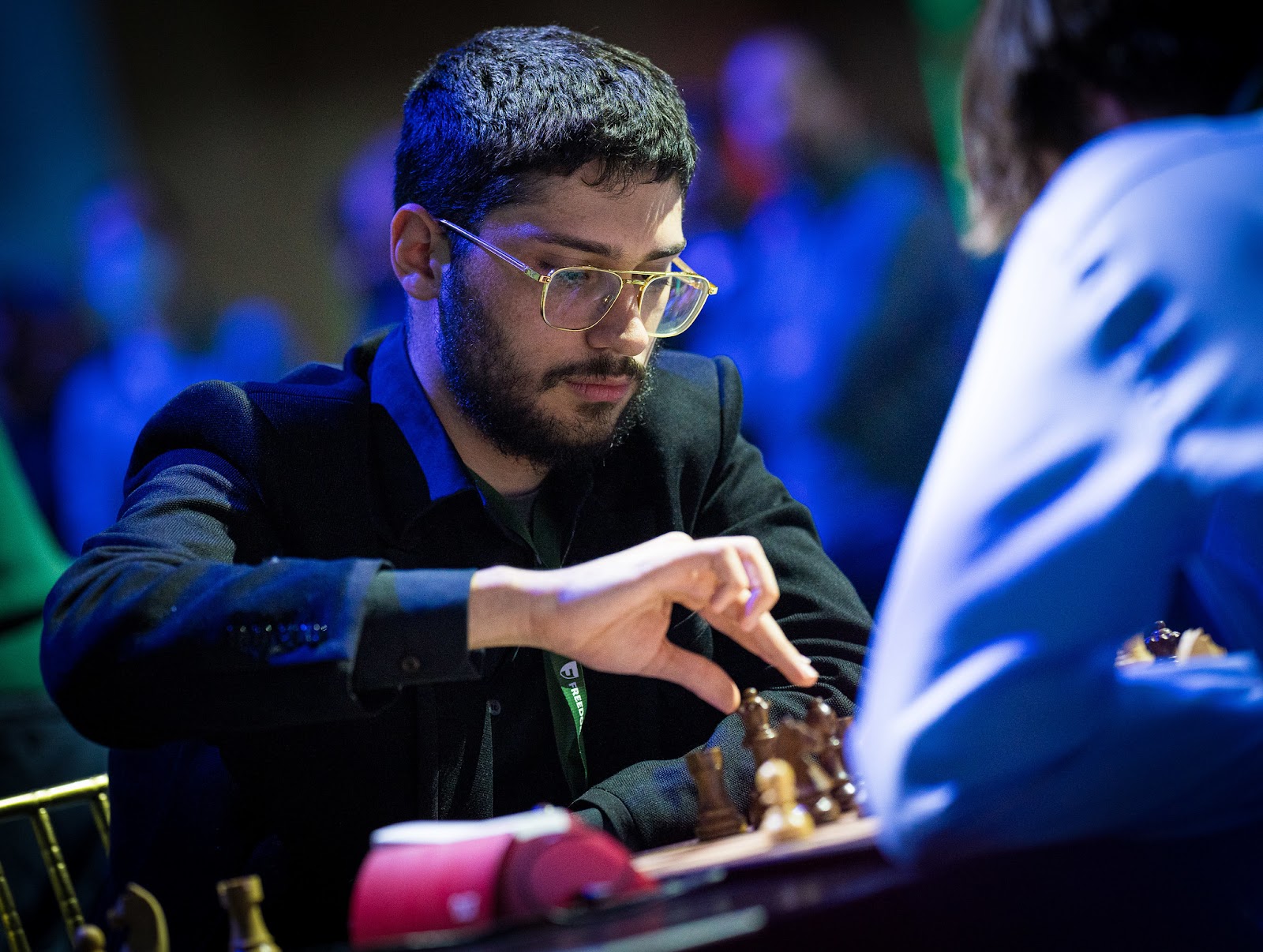
FIDE did not stay silent. In 2020, the organization warned Iran that political boycotts violated the rules of sport.
It demanded written guarantees that Iranian players would be allowed to face any opponent, including Israelis.
The principle was simple: pairings in chess must be respected, and no one should be excluded for political reasons.
Hosting rights have also caused trouble. In 2017, Saudi Arabia hosted the King Salman World Rapid and Blitz.
However, the country refused to grant visas to Israeli players, causing uproar. The tournament was moved to St. Petersburg, Russia, by the following year.
The message was clear: if a country cannot welcome all qualified players, it should not host a world championship.
These disputes show how deeply politics in the Middle East has shaped chess.
Eastern Europe: The Balkans And Recognition Struggles
Eastern Europe has also seen chess affected by political disputes. The breakup of Yugoslavia in the 1990s is one example.
Wars in the Balkans, along with international sanctions, disrupted tournaments, travel, and invitations.
The Fischer-Spassky rematch of 1992 took place in Yugoslavia, as we mentioned earlier, despite U.N. sanctions.
The question of recognition has also been constant. Kosovo’s status, for example, has been contested in politics and sport.
After years of effort, the Kosovo Chess Federation was admitted to FIDE in 2016. But the move drew protests, especially from Serbia, which does not recognize Kosovo as independent.
Even as recently as 2024, Serbian officials still challenged Kosovo’s place within FIDE.
These disputes may sound like details, but they affect real people. Which flag appears by a player’s name?
Which anthem is played after a victory? What passport do they use to register? These issues might look small, but for players and federations, they carry heavy meaning.
How Wars Affected Chess
We have dissected how specific wars and conflicts affected chess, but how do wars affect chess in general?
Tournaments and Venues
Wars force events to move. The Olympiad was shifted from Moscow to Chennai in 2022. Saudi Arabia lost hosting rights in 2018 because it refused visas to Israelis.
Flags And Federations
Players sometimes switch federations to escape pressure. Firouzja left Iran for France, and many Russians joined other countries after 2022.
The FIDE flag has become a tool to allow players to compete without representing states in conflict.
Fairness And Rules
FIDE’s charter rejects discrimination. That’s why it pressured Iran over Israeli boycotts and moved tournaments away from countries that exclude players.
Sponsorship and image: Wars make sponsors nervous. No brand wants to be tied to controversy. Federations must balance money with reputation when conflicts flare.
Players’ Lives
Above all, wars affect players as people. Some lose their homes. Some move abroad with families. Some speak out and face risks, like GM Sergey Karjakin.
Letters signed by Russian grandmasters against the Ukraine war showed that even elite players struggle with personal choices in times of conflict.
Conclusion
The lesson here is clear: the spirit of the game must be protected even in times of war.
Because while wars can change nations, the board remains the same: sixty-four squares where the world can still meet.




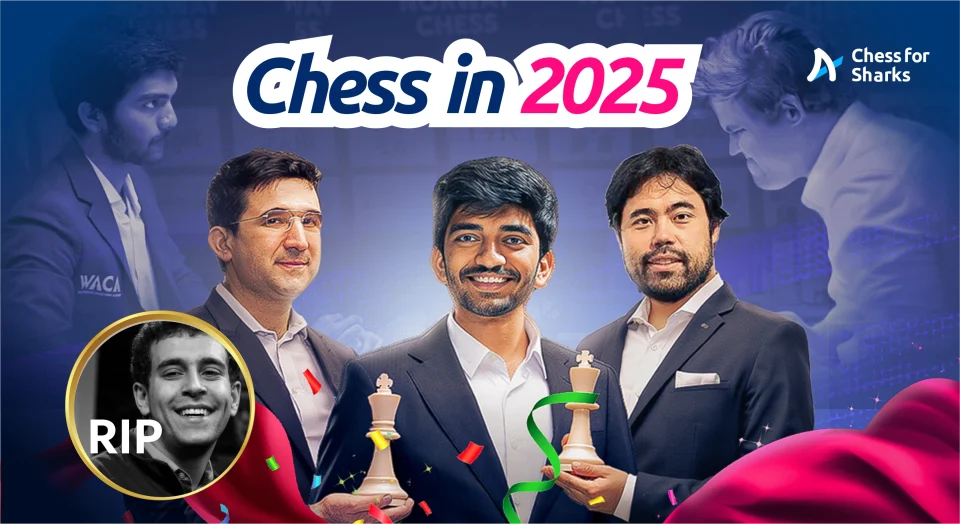


join the conversation